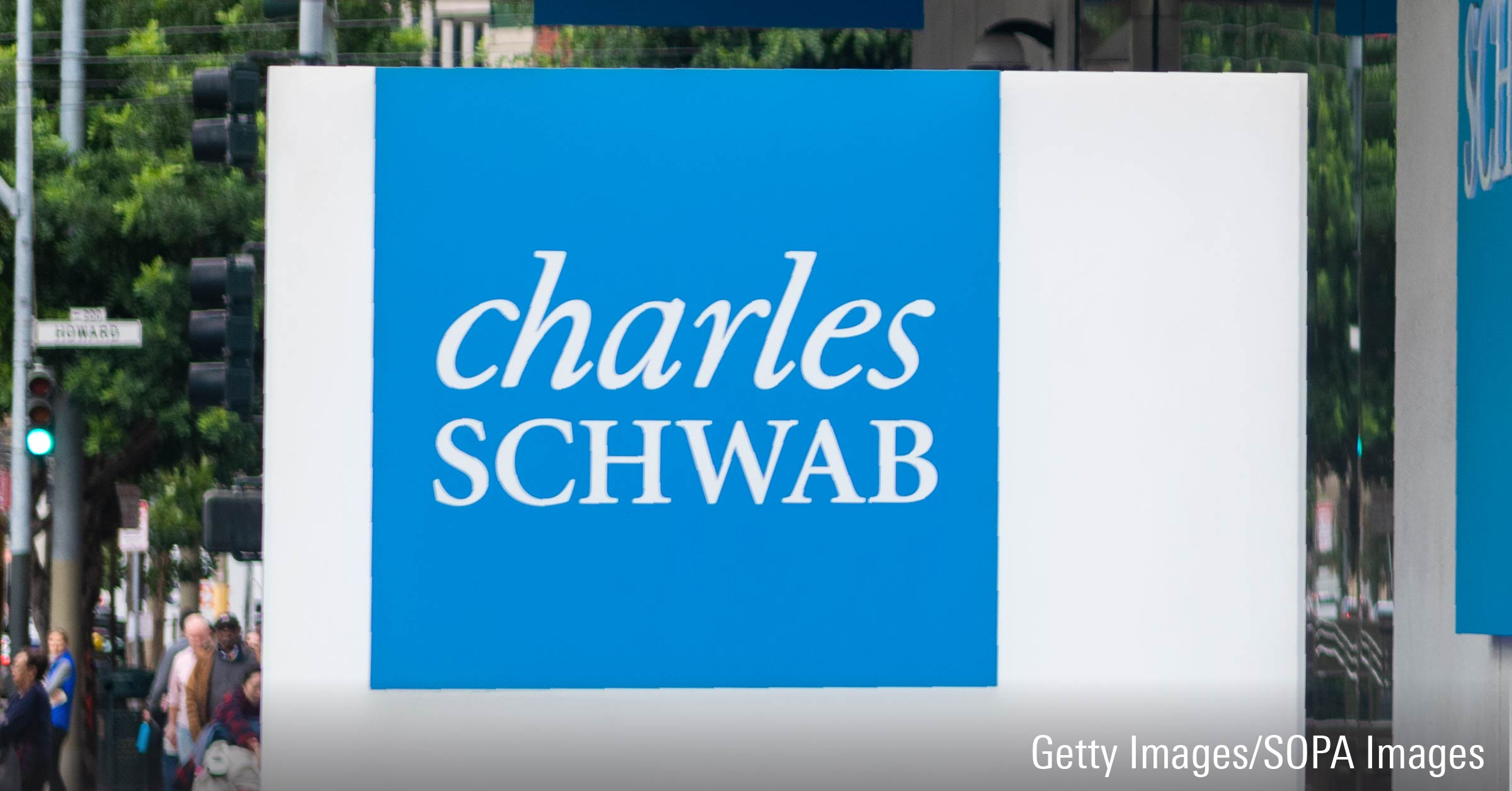Charles Schwab Earnings: Additional Expense Savings and Reduced High-Cost Funding Are Positives
Schwab stock fairly valued to modestly undervalued as earnings trajectory looks stronger.

Charles Schwab Stock at a Glance
- Fair Value Estimate: $70
- Morningstar Rating: 4 stars
- Morningstar Uncertainty Rating: High
- Morningstar Economic Moat Rating: Wide
Charles Schwab Earnings Update
As expected, Charles Schwab’s SCHW revenue and earnings are under pressure, but it’s been good to get more clarity on additional expense savings and see signs that the company may be past its peak of high-cost funding usage.
Schwab reported net income to common shareholders of $1.17 billion, or $0.64 per diluted share, on $4.66 billion of net revenue for the second quarter. Net revenue was about 9% lower from the previous year and the previous quarter as the company tapped high-cost funding sources such as certificates of deposit and Federal Home Loan Bank borrowings. We don’t anticipate making a significant change to our $70 fair value estimate, and assess the shares as fairly valued to modestly undervalued.
Schwab Earnings Trajectory Turning Positive
Schwab’s earnings trajectory is turning positive faster than either we or the market expected, helped by cost savings and a significant slowdown in cash sorting. A quarter ago, the company said it had found some additional areas to cut costs but didn’t provide a specific target. Now the company has said it expects $500 million of expense savings this year in addition to $500 million next year related to the TD Ameritrade integration. Management also said expenses may be flat or even lower in 2024 compared with 2023.
Cash sorting—clients moving cash from low-yielding bank deposits to higher-yielding alternatives like money market funds or CDs—meaningfully slowed in the previous couple of months. In the earlier months of 2023, clients were moving about $1.5 billion per day, which had to be offset by high-cost borrowing from Schwab, but recently it’s been more like $300 million. At a $300 million pace, Schwab has been able to somewhat reduce its high-cost supplemental funding, though it was on average up for the whole quarter compared with the first quarter.
The author or authors do not own shares in any securities mentioned in this article. Find out about Morningstar’s editorial policies.

/s3.amazonaws.com/arc-authors/morningstar/75bbf764-3b6f-4f5a-8675-8f9488c74c04.jpg)
/cloudfront-us-east-1.images.arcpublishing.com/morningstar/4JOND5R2SBFPZE63XWPYQDG56A.png)
/cloudfront-us-east-1.images.arcpublishing.com/morningstar/K36BSDXY2RAXNMH6G5XT7YIXMU.png)
/cloudfront-us-east-1.images.arcpublishing.com/morningstar/BG4IFJHA25B6RKD3XNUYKROBBM.jpg)
:quality(80)/s3.amazonaws.com/arc-authors/morningstar/75bbf764-3b6f-4f5a-8675-8f9488c74c04.jpg)